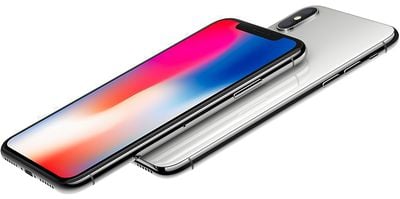Amid an escalating legal battle with Qualcomm, Apple is designing its 2018 iPhones and iPads without Qualcomm LTE chips, reports The Wall Street Journal. Apple is instead considering using only modem chips from Intel and perhaps MediaTek in its next-generation devices.
Qualcomm is allegedly withholding software that Apple needs to test LTE chips in its iPhone and iPad prototypes, necessitating the move.

The Wall Street Journal's sources say Qualcomm stopped sharing the software following the January lawsuit Apple filed against the company, hindering Apple's development efforts, but Qualcomm claims Apple has already tested the chip that would be suitable for the next-generation iPhone.
Qualcomm said its "modem that could be used in the next generation iPhone has already been fully tested and released to Apple." The chip company said it is "committed to supporting Apple's new devices" as it does for others in the industry.
Apple has used Qualcomm modem chips in its devices for many years, but began diversifying last year with the addition of Intel modem chips in the iPhone 7 and the iPhone 7 Plus. The iPhone 8 and the iPhone 8 Plus also use both Intel and Qualcomm chips. In the United States, AT&T and T-Mobile models use chips from Intel, while Verizon and Sprint models use chips from Qualcomm.
According to The Wall Street Journal, Apple's plans to stop using Qualcomm chips in its 2018 devices could still change. Apple could switch suppliers as late as June, three months before the launch of the 2018 iPhone.
Apple and Qualcomm have been embroiled in a legal battle since the beginning of the year after Apple sued Qualcomm for $1 billion, accusing the company of charging unfair royalties for "technologies they have nothing to do with" and failing to pay for quarterly rebates.
Apple stopped paying licensing fees to Qualcomm at that time, as did Apple suppliers. Apple maintains that Qualcomm charges excessive licensing fees by requesting a percentage of an iPhone's entire value, while Qualcomm says its technology is "at the heart of every iPhone."
Qualcomm has since countersued and filed several patent infringement lawsuits against Apple. Qualcomm has also asked the United States International Trade Commission to block imports of some iPhone and iPad models and has requested that China stop manufacturing and selling iPhones.























